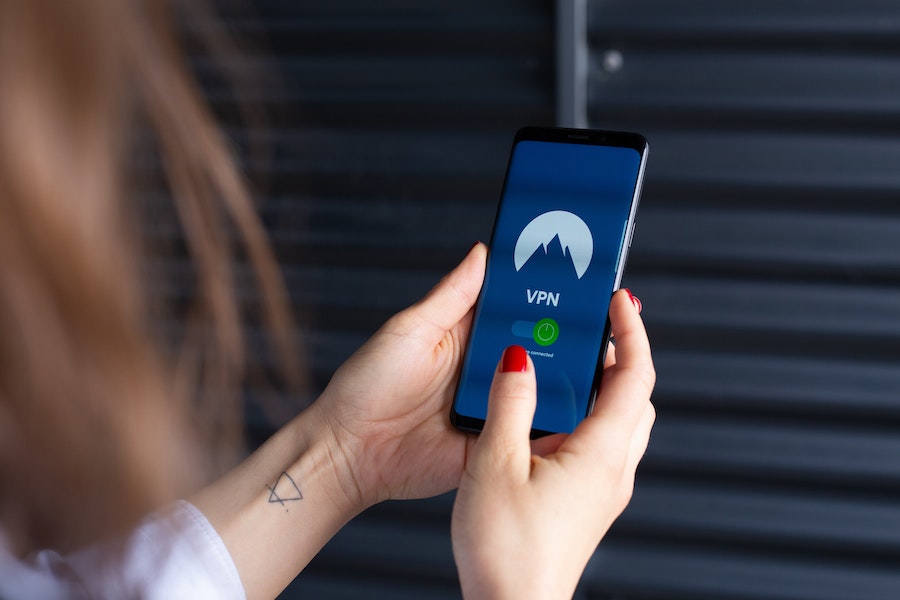
Literally every other person on the planet has a smartphone now. While owning one can lead to life-changing opportunities, it also comes with risks. It’s easy to forget about them, especially if you’re a new user who hasn’t had many dealings with devices connected to the internet 24/7 before.
Here, we highlight the seven most common mistakes people make time and again when using their phones. All seven behaviors are easy to correct, though. Doing so will make you a far less appealing target for hackers, scammers, and anyone else who might want to harm or exploit you online.
1. Not Locking Their Phone
Leaving your phone unattended in a public place is an invitation for others to exploit your private or financial info. Never leave your phone out of sight, even if you think you’re among friends! Someone might still snatch it from under your nose. Activating a passcode or symbol drawing is a bit inconvenient. Still, it can keep someone from accessing your info for long enough to try & get the phone back or lock them out of its most essential functions remotely.
2. Connecting to Untrusted Networks
While security certificates and encryption have made browsing more secure, connecting to public Wi-Fi is still a bad idea. Some websites might not use the HTTPS standard, and app encryption may not be up to snuff either.
It’s best to stick to cellular data when out and about since the connection is safer. Alternatively, you can drastically improve connection safety by using a quality VPN. Any connection you establish with an active VPN gets military-grade encryption.
Of course, it’s essential to research the VPN provider beforehand. Or, you can explore what others researched for you – for instance, there is a table comparing the best VPN options Reddit users found. Choosing a trusted provider lets you browse or use apps with confidence since no one can interpret or spy on your activity.
3. Dismissing or Postponing Updates
Updates are a core part of maintaining your phone’s cybersecurity efficiency. Developers constantly monitor their apps for vulnerabilities and exploits, as do hackers. Updating ensures you have both the latest features and protections.
Meanwhile, sticking with old versions of the operating system and apps makes it more likely that someone could use a known exploit as a backdoor that bypasses your phone’s security. You can enable automatic updates with a few taps once and forget you ever did. There are no excuses not to do just that!
4. Downloading Apps Indiscriminately
With millions of apps available in two of the most popular stores, it’s easy to download something harmful. It’s a good idea to check user reviews before doing so, especially the bad ones.
Reviews might not be enough, so keep an eye on the permissions the app asks for during setup. Some permissions are necessary for the app to function properly. However, a disconnect between its functions and the permissions an app asks for can be telling. For example, a photo editing app has no business asking for the right to access your microphone.
Reputable stores aren’t the only sources you can get apps from. Illegal or otherwise questionable apps are easy to get a hold of and install with minimal technical knowledge. Think twice about downloading such apps and the potential dangers they pose.
Also, there are free online cyber security tools that can help you check for specific data leaks or see what IP address is attached to you when browsing. In case some data related to your previous downloads is exposed, it’s important to know, and such tools help.
5. Not Caring About Password Security
Almost every online feature on your phone is locked behind an account, not to mention how each app requires its own. On paper, passwords make it hard for anyone besides the account’s owner to gain entry. However, most people don’t take password creation seriously enough. Duplicate, short, and easy-to-guess passwords provide no protection. Worse yet, such passwords can put more than one account at risk if they become part of a data breach.
Password managers are convenient tools that take care of this problem proactively. They store all the passwords you need and can fill them in automatically during login. More importantly, managers use cutting-edge algorithms to generate new passwords. These adhere to best practices, i.e., they’re long, hard to remember, and contain special characters. The manager does all the remembering while you reap the security benefits.
6. Not Using 2FA
Strong passwords beef up your security, but they’re not foolproof. It’s not their fault – it’s us humans who botch things by sharing or writing them down for snoops to see. Luckily, a stolen password isn’t the end of the world, provided you secure it with two-factor authentication. You don’t even need to install yet another app since advanced password managers come with the feature built-in.
2FA improves account security by requiring another step during login. The most common method is to get a text message and type the code you receive after entering your login credentials. That way, someone who stole the password would also need physical access to your phone to get to the account.
Moreover, the authenticator can notify you when a login from an untrusted source happens. This lets you change the password as soon as you suspect foul play.
7. Falling for Social Engineering Attacks
Social engineering is a particularly devious and growing threat. It takes various forms, from social media contacts that pray on our loneliness to well-researched emails that look like your boss wrote them. The end goal is always the same – to get you to click on a link and collect your information or to trick you into sending money.
Such attacks are becoming more sophisticated and brazen. Set some time aside and learn how to recognize them to not fall for such attempts. Along with all the tools we’ve mentioned, knowledge will help you add the most essential layer. With it, cybercriminals will not get through to you.


